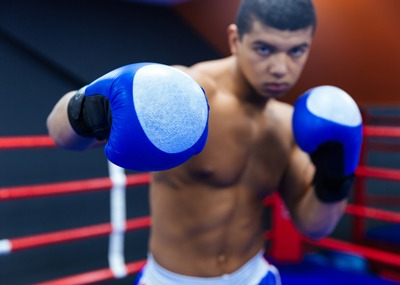Mental Toughness In Sports

How To Become Mentally Strong
February 27, 2017
Goalie Psychology – Confidence, Concentration and Focus
February 4, 2018Mental Toughness In Sports
Coaches and athletes from youth sports, college and professional sports agree that being mentally tough is a key component to be successful in sport. The definition of mental toughness as defined by myself, and by many other sports psychologists, sports coaches and mental trainers as being focused, determined, confident and resilient, especially under pressure.
Through the proper mental training, you can grow your ability and encourage that relentless desire to achieve the SMART goals that you have set. You learn how to easily battle through challenges when things get tough, your skills rise to the surface when you eliminate the fear and negativity that has been holding you back. When you develop your mental edge, sometimes referred to as performance psychology, your sports performance climbs to new levels where a bad game or blown play doesn’t change your belief in the skills, both physical and mental, that you know you have. Those four important attributes defining mental toughness are such key factors in overcoming things like underlying fears of failure and disappointing parents and coaches, choking in competitive situations, performance anxiety, negative self talk, and many other similar issues. Although many elite athletes and high level coaches have learned how to accomplish these things, most youth sports coaches and parents only provide their athletes with clichés or positive self talk and not the tools needed to consistently develop mentally tough responses in game situations. Let’s go through the characteristics defining mental toughness.
Focused
The first attribute of mental toughness in athletics and sport is the ability to maintain a focused intensity creating peak performance consistently, regardless of the situation. When you are mentally tough, your focus keeps you in the present moment where fear does not exist. Learning the mental skill of focus is one of the biggest things that mental toughness training can provide. Sports psychologists will tell you that focusing only on things that you have control of and that keep you present is key to an elite performance like Olympic champions. Removing fear of failure by learning HOW to stay in the present and to not get distracted by things going on around you that do not help your performance is all part of the mental skill of focus. Focused in the present, your performance seems almost effortless, both physical and mental.
Determined
Determination is what gets everything started and it also encompasses desire and commitment. To develop mentally tough athletes, determination is an extremely important component. Although commitment drives you to your goal, without the determination and desire to set and achieve your SMART goals, there is no commitment! Mentally tough athletes are extremely determined to achieve their goals and have the commitment to see it through. When you are on your mental game you are able to make sound decisions in the moment that help you achieve you ultimate goals. Athletes mentally and physically determined to reach their goal, can see any obstacles or setbacks as a chance to learn, make themselves stronger and more determined in the pursuit of their goals. Although a set-back, they are a temporary hiccup that can help you in the achievement of your goals, if you learn from them.
Confident
I has been said that the simplest definition of confidence is when the I can’s outweigh the I cant’s. I think one way of measuring mental toughness focuses around confidence and can be looked at this way. “Win or Lose” is a thought process that can be completely detrimental to the building of confidence. Win helps build confidence, lose destroys confidence. When an athlete can think of outcomes in terms of “Win or Learn” everything can be a success, even if it is small. Wins build confidence and learn builds confidence in that you learned what you need to work on in practice to change the outcome next time. No matter how small, use every success to build your self confidence. I believe that having this ability is a great way in measuring mental toughness of an athlete.
Resilient
The final piece in my definition of mental toughness is being resilient. Consistent sports performance, especially that peak performance state, is dependent on how resilient an athlete is. Performance anxiety and fear of failure can creep in, especially in competitive situations when mentally bouncing back from a setback in your sports performance doesn’t occur. Mentally tough athletes, through the proper mental training, can learn to quickly bounce back and adapt on the fly. Resilient, in performance psychology, terms means that a setback doesn’t interfere with the remainder of your performance. Where athletes who are not mentally tough see a struggle or setback, athletes trained in mental toughness see it as motivation to bounce back and succeed in those competitive situations.
Mental toughness training is not only for Olympic champions, elite athletes or professionals, it is a way for every athlete to grow, improve, gain that mental edge and achieve peak performance. Let me train you to become the mentally strong athlete that you know you can be with my training programs proven to help athletes of all ages succeed. I have had athletes refer to my training programs as legal performance enhancement! Phone 306-525-0007 to arrange a free consultation.
Ken Ansell – Your Mental Toughness Trainer
Ken@sportsmentaltoughness.ca
306-525-0007


